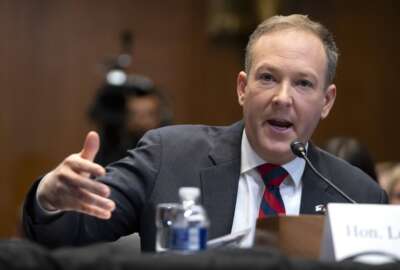Lawmakers continue battle over federal retirement benefits
In the latest attempt to cut federal retirement benefits, the House Oversight and Government Reform Committee has reported out legislation that would make feds...
The House Oversight and Government Reform Committee has reported out legislation that would make federal employees contribute 1.5 percent more of their salaries to their pensions and end the Federal Employees Retirement System annuity supplement for people who retire before age 62.
This is just the latest attempt by Republican lawmakers to overhaul a federal pension system that they describe as “bloated” and “expensive.”
Americans are “rightfully outraged by the pension benefits guaranteed to a federal workforce that has grown too large,” said Rep. Dennis Ross (R-Fla.), who sponsored the bill. “This is not at all a swipe at any federal employee. There is no vilification going on here. The reality is we have to change the way we do business.”
The provision that would end the FERS annuity supplement for people who retire early has drawn the most criticism from federal employees’ groups. In efforts to stir up opposition, the National Treasury Employees Union has shared horror stories of federal workers who may have to delay their retirement plans if this bill becomes law.
The bill would have a greater impact on future feds, however. New hires would have to pay 4 percent of their salaries toward retirement. Their annuities would be calculated based on their highest five years’ salary, rather than their highest three. 
He added, “There is nothing but an IOU to be paid by future generations for all of these defined benefit plans. Unless we begin being more on a pay-as-you-go basis and less on an our-children-will-pay basis, we stand with a real problem for future generations.”
Republicans also point out this bill doesn’t just affect federal employees, but members of Congress and their staffs.
Committee Democrats contend, however, that FERS is fully funded.
The older Civil Service Retirement System is not, but the Democrat members say evidence shows the liabilities for those folks will disappear after 2050, as the approximately 100,000 federal employees still under that system retire.
The committee approved the bill along party lines, but Democrats vowed to keep fighting it.
“I’m going to oppose this with every fiber in my being and it is my fond hope that this bill will die an agonizing death in the U.S. Senate, should it get that far,” said Rep. Gerry Connolly (D-Va.).
Additionally, the likelihood the Senate will take up a similar measure and the President would sign it is small. Still, the concern over potential changes is having an effect across the government.
Congressional debate may drive retirement wave
While no hard numbers exist, anecdotes indicate that Congress’ repeated attempts to curtail retirement benefits may be encouraging federal workers to leave service now, before any changes to their benefits could take effect.
The Department of Veterans Affairs has seen a 70 percent increase in retirements since 2009, Assistant Secretary of Administration John Sepulveda told Federal News Radio.
“Concerns about benefits, concerns about how employees are being treated in the media and elsewhere is probably a significant reason why we have that uptick in people choosing to retire,” he said.
Sepulveda spoke at a Government Executive event Tuesday morning on managing people in a difficult economic and political climate.
“We have to step up,” he told the audience of government employees. “We have to be aggressive about seeking out opportunities to tell our story. To do anything less is to basically allow that vacuum to be filled with all this political opportunism.”
RELATED STORIES:
House committee takes up bill cutting federal retirement benefits
VA, Education reap benefits of hiring reforms
Lawmakers spar over proposed federal retirement cuts
Copyright © 2025 Federal News Network. All rights reserved. This website is not intended for users located within the European Economic Area.





